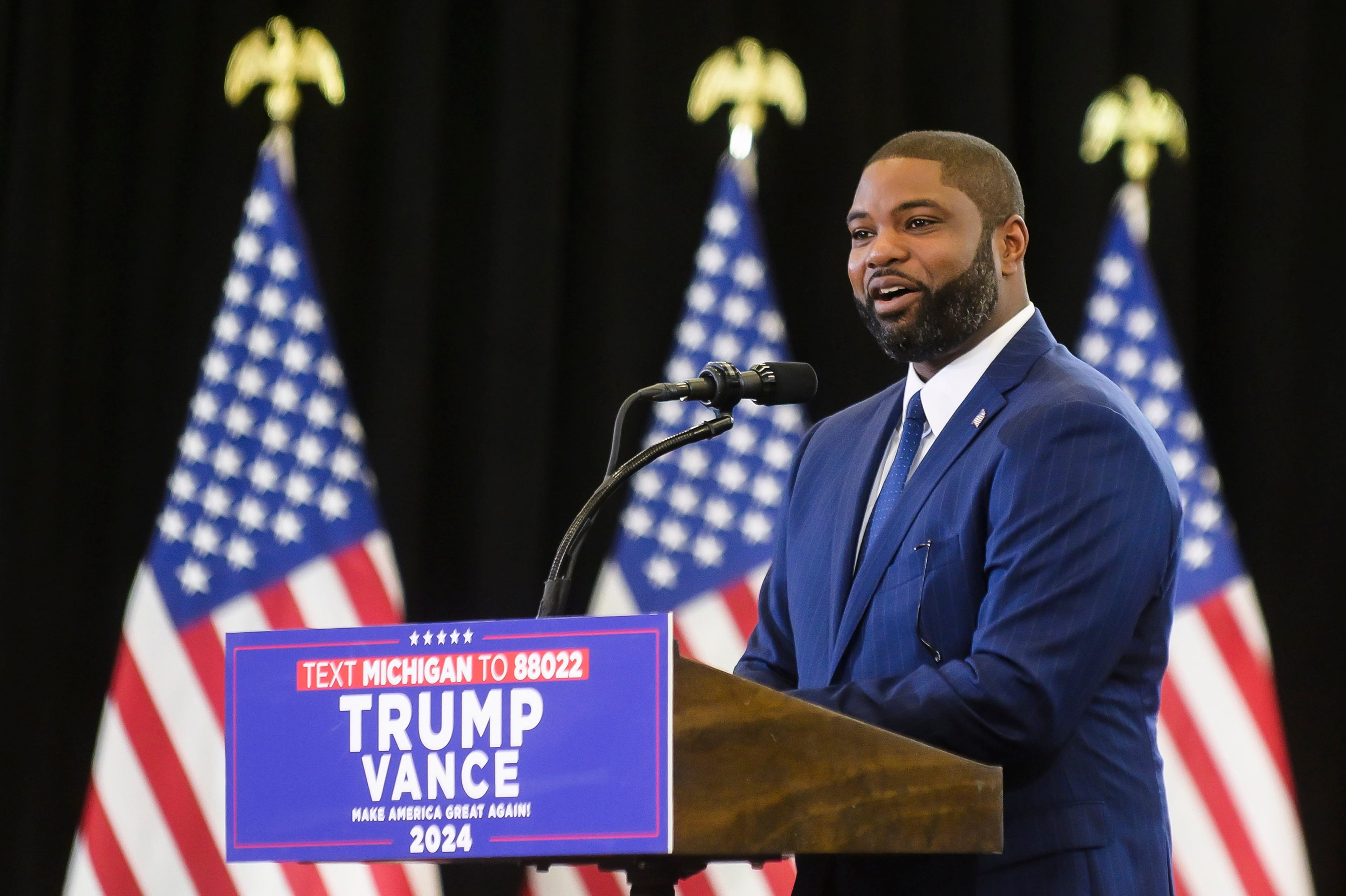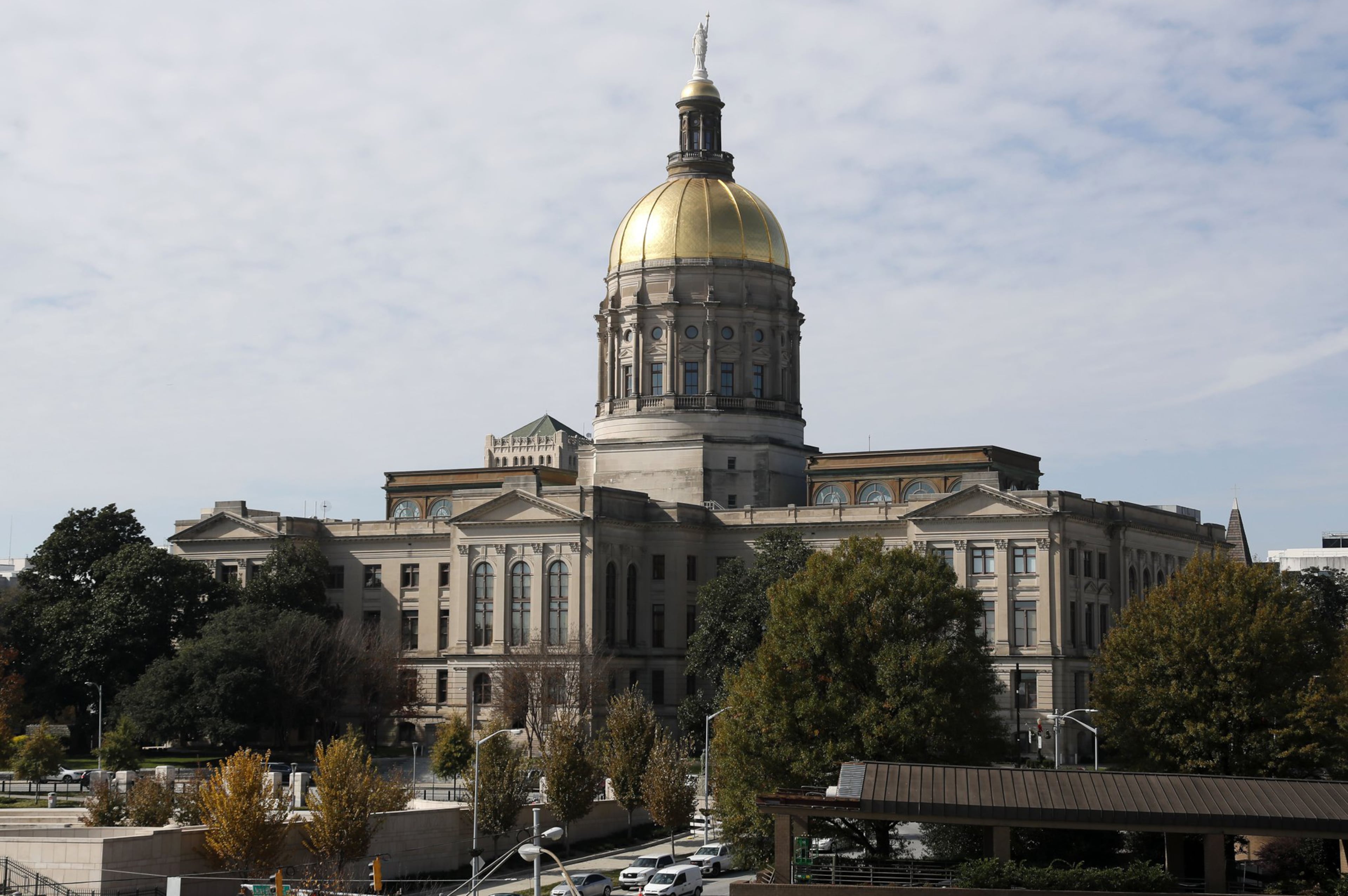These races for governor will reshape the South and MAGA

COLUMBIA, S.C. — Taking the stage of South Carolina’s largest and most important Republican Party fundraiser, Lindsey Graham is distracted. He’s on the phone.
South Carolina’s senior U.S. senator pauses, as if suddenly realizing where he is. He briefly interrupts the call to hold the phone triumphantly over his head.
“This is President Trump,” he says.
South Carolina’s race for governor in 2026 includes two statewide elected officials and two sitting members of Congress. Three of them are in the room. But they are overshadowed in an instant as Graham holds his phone to the mic and the crowd of more than 1,000 dressed-up Republican Party insiders lean forward in their seats to hear what Donald Trump has to say.
They know that, with just a few words, Trump can turn one of the nation’s most competitive Republican primaries into a runaway. It’s a reflection of his power after more than a decade of dominating Republican politics. But it’s also a warning about the party’s future.
The 2026 midterms are likely the last election for Trump at the height of his political powers. A big question is how the party will cope once Trump leaves office after 2028. The first clues could come after the Republican primaries for governor across five Southern states that long been the core of the party’s conservative base — Alabama, Florida, Georgia, South Carolina and Tennessee.
It’s the first time these reliably Republican seats have been simultaneously open since 2010. Back then, the party was struggling to find its identity amid the presidency of Democrat Barack Obama. Today, there is no question what the GOP looks like: it’s the party of Trump and his MAGA ethos that values loyalty above all else — even above the party itself.
“We haven’t done well when Trump’s not on the ballot,” said Chad Connelly, the former chair of the South Carolina GOP who now runs Faith Wins, a national political organization focused on registering evangelical Christians to vote. “How do you recreate the Trump coalition is the biggest question for Republicans in all those states.”
Much of the national attention over the next year will be on U.S. Senate races in Georgia and North Carolina, two states that have oscillated between red and blue waves in recent cycles. The winners of those races will have a big impact on how effective Trump can be in the final two years of his term.
But it’s the governor races that could have a broader impact on the party’s future. Historically, governors have held more influence in their state party organizations, given their proximity to voters and their control of coveted state jobs and appointments. These executives are the ones who will set the course for the political future of their states and the region.
Over the past decade plus, red Southern states have seen their populations grow in part by an influx of people moving from more liberal states — a phenomenon that has only strengthened the GOP’s grip.
“Red states in many ways are getting redder and blue states are getting bluer because people are kind of migrating to where, you know, their values are being upheld in the government that they’re under,” said Randy Page, a former member of the National Platform Committee for the Republican National Convention who now helps lead the conservative evangelical organization Palmetto Family Council.
Georgia is an exception, where the metro Atlanta region has gotten bluer, giving Democrats a path to win statewide elections. Georgia has sent two Democrats to the U.S. Senate and helped put Joe Biden in the White House before flipping back to Trump in 2024. The state has a robust Democratic bench, as evidenced by more than half a dozen candidates vying for the party’s nomination for governor.
It’s why Georgia’s 2026 Republican primary for governor could be the most telling for the future of the party. Trump has already endorsed Lt. Gov. Burt Jones, a reliable ally who at one point was the target of an investigation for his role in aiding the president’s efforts to overturn Georgia’s 2020 election results. Jones wasn’t charged after a prosecutor determined his conduct was “reasonable and not criminal.”
Republican voters have two viable alternatives in Attorney General Chris Carr and Secretary of State Brad Raffensperger, both of whom resisted Trump’s efforts and survived MAGA-backed primary challenges in 2022.
Carr and Raffensperger have been careful not to publicly criticize Trump. But their candidacies are widely seen as a more mainstream alternatives to Jones’ all-in MAGA bid.
But elsewhere across the South, it’s clear that Trump is still king of Republican Party politics.

He’s already endorsed U.S. Rep. Byron Donalds’ campaign in Florida, a nod that has propelled him to an impressive lead in early polling. In Alabama and Tennessee, two U.S. senators — Tommy Tuberville and Marsha Blackburn, respectively — are widely seen as the front-runners for the GOP nomination for governor as longtime Trump loyalists.
In South Carolina, the large GOP field is fighting fiercely for Trump’s attention. Party insiders say Lt. Gov. Pamela Evette and Attorney General Alan Wilson have the best shot at the nomination. U.S. Rep. Nancy Mace has a rocky history with Trump, but can’t be counted out after receiving his backing in her previous congressional campaign.
U.S. Rep. Ralph Norman’s campaign, meanwhile, is complicated by his close relationship with former Gov. Nikki Haley, who unsuccessfully challenged Trump for the Republican presidential nomination last year. Norman, a member of the House Freedom Caucus that has threatened Trump’s major policy priorities, has said he will not seek the president’s endorsement — prompting dismay from the rest of the Republican field.
“President Trump is a once-in-a-generation president,” Wilson said. “Anybody who says that they do not want his endorsement is lying to you.”
Although Trump’s endorsement carries great weight, it’s unclear how involved the president will be in these Republican primaries. Trump has shifted some campaigning responsibilities to Vice President J.D. Vance, a sign that the former U.S. senator from Ohio could be in line as the successor to the MAGA movement.
“From a campaign perspective, I’d rather have J.D. Vance in for the fundraiser,” said Walter Whetsell, a veteran Republican political consultant who is running Wes Climer’s campaign in South Carolina’s 5th Congressional District.
Trump has stayed out of this year’s governor’s race in Virginia, so far declining to officially endorse Lt. Gov. Winsome Earle-Sears in her bid to replace term-limited Republican Gov. Glenn Youngkin.
Youngkin was the keynote speaker for the South Carolina Republican Party’s Silver Elephant Dinner last month. And Graham, one of Trump’s closest allies in the U.S. Senate, sees Youngkin as a model for the party’s future.
“I think Glenn fills a lane in our party, quite frankly, that is going to get bigger over time,” he said. “A little less ideological, a little more practical.”
Graham played golf with Trump before his public phone call from the stage. He told reporters that his advice to Trump was to learn from the example of another Republican icon, former President Ronald Reagan.
“I told him, ‘You’re in the same sentence now with Reagan. And that, my friend, is a major accomplishment,’” Graham said. “But it does depend on how this movie ends. He’s still got a way to go.”
More Stories
The Latest



